Human Development Conference
The University of Notre Dame’s Human Development Conference (HDC) is an annual, student-led conference that provides a platform for dialogue in which students from many academic backgrounds and disciplines can share their development-focused research. HDC strives to empower passionate students to learn more about a wide range of topics and network with other student researchers from across the country and the world.
Development with Dignity: A Human-Centered Approach to Progress
The 9th Annual Human Development Conference
University of Notre Dame
February 24–25, 2017
Our Theme
In order to implement the Sustainable Development Goals, the global community needs to shift from theory to practice – from policy to individuals – refocusing its efforts by placing humans at the center of the sustainable development agenda. Creating solutions to critical issues that afflict the world’s populations today requires not only a shift in scale but the recognition and continual affirmation that the dignity of peoples on all sides of the path to progress must be the central focus of development.
2017 Committee Member Bios
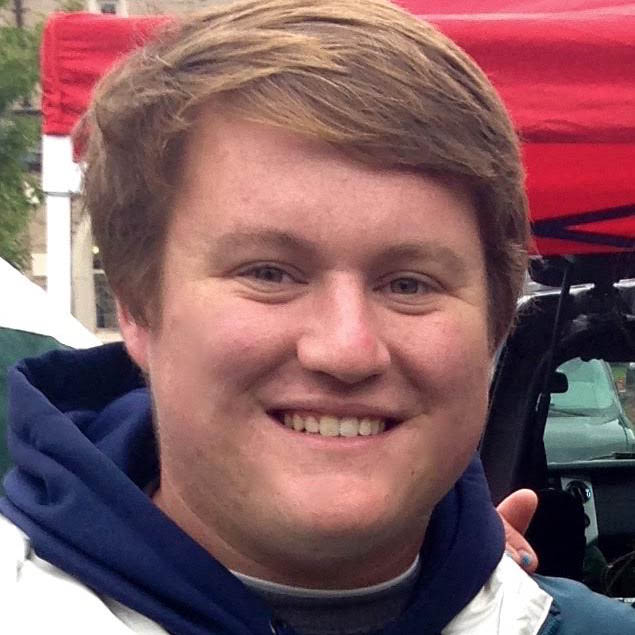
Daniel Kendall - Co-Chair
Daniel Kendall is a senior neuroscience major with a minor in international development studies from Point Pleasant, New Jersey. His research interests focus on global healthcare policy, more specifically on the strengthening of healthcare systems in Sub-Saharan Africa. This past summer he designed and implemented a research project on medical brain drain in Kampala, Uganda. Last year Daniel was a member of the HDC Liaisons Committee.
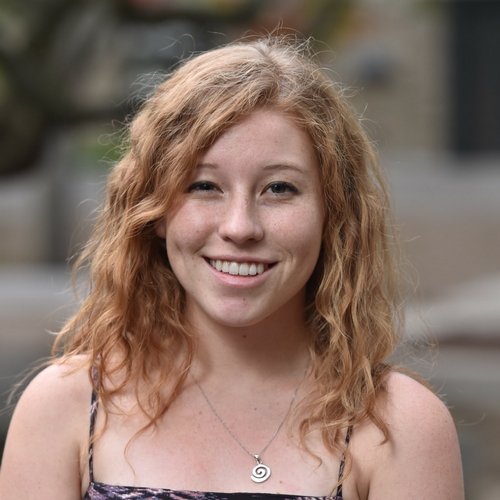
Eryan Gwin - Co-Chair
Eryan Gwin is a fifth-year architecture major and international development studies minor from Irvine, California. Her interests revolve around understanding and designing sustainable cities, in particular, how to create urban environments that best serve the communities that inhabit them. She spent the last summer in Lima, Peru, researching the effects of industrial zoning on real and perceived economic opportunities.
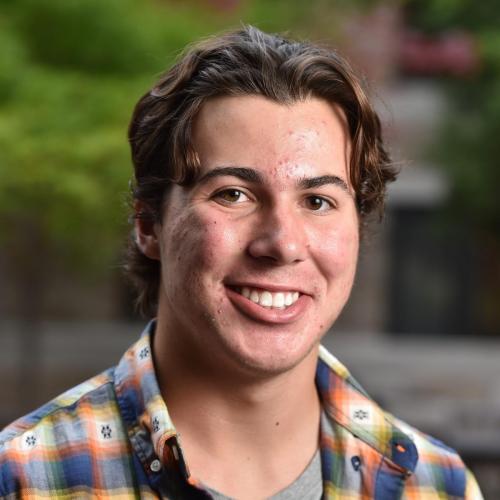
John Haley - Video Committee Chair
John Haley is a junior film and international peace studies major from North Mankato, Minnesota. His interests include media advocacy and climate change adaptation strategies. He spent the past summer working on a documentary examining the impact of oil spills in the Gulf of Mexico.

Sam Lucas - Abstract Committee Cochair
Brittany is a junior from Lakeville, Minnesota, studying international economics (French and Spanish) and peace studies. She is interested in issues of migration, forced displacement, gender and sexuality, and climate change adaptation. She has served on the HDC’s liaisons committee, presented at the 2015 HDC, and completed an Experiencing the World research fellowship through the Kellogg Institute. This year, she is co-chair of HDC communications.
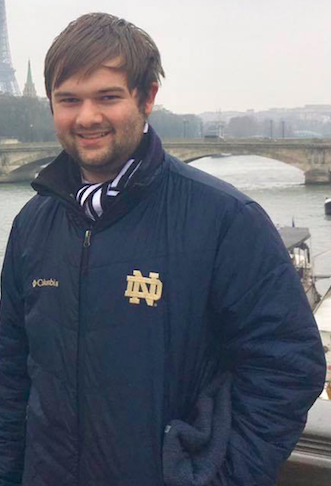
Zachary Spahr - Abstract Committee Cochair
Zach Spahr is a junior international economics and political science major from McLean, Virginia. His interest in development lies in how education and political institutions can help improve living conditions for people in poverty. Last year, Zach worked as a member of the HDC Abstracts Committee, which he cochairs this year.

Megan Pogue - Communications Co-Chair
Megan Pogue is a senior biological sciences major from Centennial, Colorado. She is interested in children’s rights and children’s health, with a primary focus on ways to prevent and treat child abuse. Megan has spent time working both domestically and internationally with maltreated children and hopes to continue working towards the development of ways to protect these vulnerable members of our communities. She was involved in the HDC Communications Committee last year and is looking forward to having a more hands-on role at the conference this year as a cochair of the Logistics Committee.
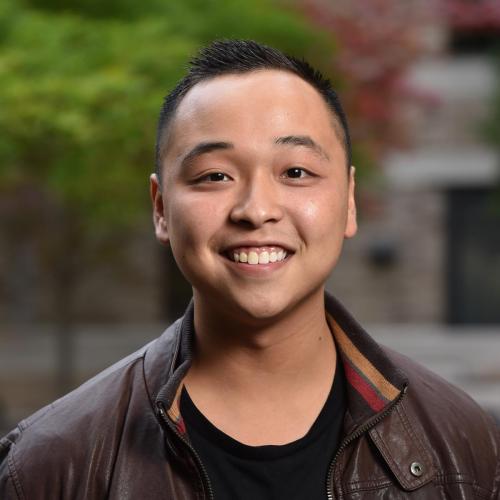
King Fok - Logistics Committee Cochair
King Fok is a junior sociology and prehealth major from Hong Kong. His research interests include amputees and prosthesis care in healthcare systems domestically and internationally, spending the past summer researching rehabilitative services in Ghana. He has been involved with the Kellogg Institute for International Studies since freshman year as a member of the International Scholar Program, Kellogg Student Program Advisory Board, and International Development Studies Minor. He has served on the Human Development Conference committees for Abstracts (2014-2015) and Communications (2015-2016).

Tommy Emmet - Liaisons Committee Cochair
Tommy Emmet is a junior neuroscience and behavior major and international development studies minor from Grapevine, Texas. He is interested in health systems development, specifically in West Africa. He has worked in an eye clinic in Sierra Leone, completed a clinical internship at the Volta Regional Hospital in Ghana, and studied abroad in Dublin, Ireland. Previously, he has worked on the Abstracts Committee for the HDC.

Matthew Weyenberg - Marketing and Communications Committee Cochair
Matt Weyenberg is a senior science preprofessional major and international development studies minor from a suburb of Cleveland, Ohio. He is very interested in global health and underserved populations and has spent the past two summers in Uganda, as well as a semester in Puebla, Mexico. His research this past summer focused on experiences with sickle cell disease at a sub-clinic of Uganda’s largest public hospital.

Sheryl Cherian - Marketing and Communications Committee Cochair
Sheryl Cherian is a senior neuroscience and behavior major and poverty studies minor from Lincolnwood, Illinois. Her time abroad has influenced her interests in the social determinants of health, with particular interest in mental health and resilience promotion in the context of human development initiatives in under-resourced areas both domestically and internationally. She spent this past summer in India researching the factors that contribute to the high female adolescent suicide rate in the relatively socially developed state of Kerala. Last year, Sheryl was a member of the Liaison Committee.
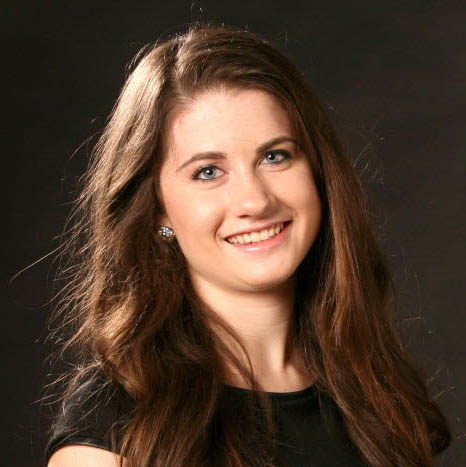
Sarah Fracci - Photography Contest Cochair
Sarah Fracci is a senior majoring in biological sciences with minors in international development studies and poverty studies from Cleveland, Ohio. Sarah holds a strong passion for understanding global health issues and pursuing possible solutions in order to bring health and well-being to all, with particular interest in the growing incidence of cancers in developing nations. Her research seeks to understand how accompaniment, both between individuals and between supporting organizations, may fit into a possible solution. This past summer Sarah worked in Kampala, Uganda, with the Uganda Cancer Institute on a project investigating the role of accompaniment on the reduction of stigmatization felt by women battling breast cancer.
2017 Keynote Speakers

Kennedy Odede
Kennedy Odede founded and serves as chief executive officer of Shining Hope for Communities (SHOFCO), a nonprofit organization that combats extreme poverty and gender inequality for the urban poor by linking tuition-free schools for girls to a set of high-quality, holistic community services, including food, healthcare, and psychosocial services.
Raised in Kibera, Kenya, the largest urban slum in Africa, Kennedy experienced the devastating realities of life in extreme poverty and dreamed about changing his community. Today, he is one of Africa’s most well-known social entrepreneurs and community organizers.
The co-author of Find Me Unafraid: Love, Loss, and Hope in an African Slum (2015), Odede has been published in the New York Times and featured on CNN and NBC Nightly News. He received the prestigious Echoing Green Fellowship for his social entrepreneurship and won the 2010 Dell Social Innovation Competition. Kennedy is also the co-chair of the Youth Panel for the International Commission on Financing Global Education Opportunity, a member of the Clinton Global Initiative, a World Economic Forum Young Global Leader, a senior fellow with Humanity in Action, and a trustee of Wesleyan University.

Carolyn Woo
Carolyn Woo is the former president and chief executive officer of Catholic Relief Services (CRS). She led the organization from 2012 until 2016, after serving on the Board of Directors from 2004 to 2010. Catholic Relief Services is the official international humanitarian organization of the Catholic Church in the United States. Without regard to race, religion, or nationality, CRS aims to alleviate suffering and provide assistance to people in nearly 100 countries around the world.
Before becoming president of CRS, Woo led a distinguished career in academia. From 1997 to 2011, she served as the dean of the University of Notre Dame’s Mendoza College of Business. Woo was the first female dean to chair the Association to Advance Collegiate Schools of Business (AACSB)—the accreditation body for business schools—and directed its Peace Through Commerce initiative. Additionally, she helped launch the Principles for Responsible Management Education for the United Nations Global Compact.
Schedule
Friday, February 24
1:30 pm - Registration Opens - Great Hall, Hesburgh Center
3:30pm to 4:30pm - Reception: Presenters, Networking Event - Great Hall, O'Shaugnessy Hall
Notre Dame Students interested in the International Development Studies Minor are encouraged to attend.
4:30 pm - 5:45 pm - Opening Remarks & Keynote Conversation - Annenberg Auditorium, Snite Museum of Art
Dr. Carolyn Woo
Former CEO Catholic Relief Services
5:45 pm - 6:15 pm - Public Reception, Snite Museum of Art
6:30 pm - Private Dinner - Great Hall, Hesburgh Center
(For Presenters and Invited Guests)
Saturday, February 25 - Hesburgh Center
9:00 am - 9:30 am - Coffee and Light Breakfast
9:30 am - 10:30 am - Panel Session 1
Panel A - Challenges of Urbanization in the Developing World- (Hesburgh Center Auditorium)
Panel B - The Intersection of Human Dignity and Environmentally-Conscious Policy- (C102 Hesburgh Center)
Panel C - Acknowledging Dignity: Improving Reproductive Healthcare for Migrant and Refugee Women - (C103 Hesburgh Center)
Panel D - Human-Centered Models of Economic Empowerment- (C104/105 Hesburgh Center)
10:30 am - 11:00 am - Break
11:00 am - 12:00 pm - Panel Session 2
Panel A - Treating the Individual: Understanding Social Barriers to Quality Healthcare - (Hesburgh Center Auditorium)
Panel C - Constructing Communities: Interplay between Infrastructure and Social Factors - (C103 Hesburgh Center)
Panel D - Understanding Social Vulnerability through Voices of the Marginalized - (C104/105 Hesburgh Center)
12:00 pm - 1:00 pm - Lunch
1:00 pm - 2:00 pm - Panel Session 3
Panel A - Social and Cultural Dynamics of Health: Why Well-Being Matters in Development- (Hesburgh Center Auditorium)
Panel B - Data-Driven Decision-Making in Development - (C102 Hesburgh Center)
Panel C - Understanding Women’s Empowerment in Communities - (C103 Hesburgh Center)
Panel D - Dignity of the Body: Issues in Sex Work and Sex Trafficking - (C104/105 Hesburgh Center)
2:00 pm - 2:30 pm - Break
2:30 pm - 3:30 pm - Panel Session 4
Panel A - Moving Toward Sustainable Health Systems - (Hesburgh Center Auditorium)
Panel B - Implications of Identity: Understanding the Relationship between Policy and the Individual - (C102 Hesburgh Center)
Panel C - Advocacy and Empowerment: Working Together to Eradicate Intimate Partner Violence - (C103 Hesburgh Center)
3:30 pm - 4:00 pm - Break
4:00pm - 5:00pm - Panel Session 5
Panel A - Addressing Her Barriers: Holistic Approaches to Women's Health - (Hesburgh Center Auditorium)
Panel B - Inclusion of the Marginalized in Development - (C102 Hesburgh Center)
Panel C - The Power of Education and Engagement in Public Health Intervention - (C103 Hesburgh Center)
5:00 pm - Closing Remarks - Hesburgh Center Auditorium
Panel Descriptions
Panel Session 1: 9:30am - 10:30am
Panel A - Challenges of Urbanization in the Developing World
(Hesburgh Center Auditorium)
Austin Crouse (Davidson College)
“The Politics of Urban Transport Planning in Ahmedabad, India”
Eryan Gwin (University of Notre Dame)
“The Myths of Industrial Zoning and economic progress in Lima, Peru”
Carl Hooks (Washington University in St. Louis)
“Solving Slums: Toward a Superior Redevelopment Policy in Mumbai, India”
Panel B - The Intersection of Human Dignity and Environmentally-Conscious Policy
(C102 Hesburgh Center)
Katrina Kniss (Goucher College)
“Escaping the Concrete Jungle: An Exploration of Ecotourism Development in Dzongu, North Sikkim”
Jacob Sivinski (Lewis & Clark College)
“Conservation For Whom?: the struggle for indigenous rights in Sagarmatha National Park”
Panel C - Acknowledging Dignity: Improving Reproductive Healthcare for Migrant and Refugee Women
(C103 Hesburgh Center)
Emma Hall (Loyola University Chicago)
“Cross-Cultural Childbirth: Prioritization the Healthcare Experiences of Migrant Women in Competent Models of Care”
Megan Kerstein (Washington University in St. Louis)
“A Comparative Study of Women’s Health Care: Non-Syrian Refugee Women Living in Amman and Syrian Refugee Women Living in Refugee Camps”
Hilary Smith (University of Denver)
“Syrian Refugee Women in Jordan: Family Planning Preferences and Barriers”
Panel D - People-Centered Models of Economic Empowerment
(C104/105 Hesburgh Center)
Carlson Giddings (George Washington University)
“Traditional Fresh Markets and the Supermarket Revolution: A Case Study on Châu Long Market”
Brian Mukhaya (University of Notre Dame)
“Classical Training vs Mentorship in Dandora, Kenya”
Panel Session 2: 11:00am - 12:00pm
Panel A - Treating the Individual: Understanding Social Barriers to Quality Healthcare (Hesburgh Center Auditorium)
King Fok (University of Notre Dame)
“Structural and Social Barriers to Prosthetic and Amputee Care in Ghana”
Sarah Fracci (University of Notre Dame)
“Role of Compassionate Caring via Stable and Reliable Relationships on the Reduction of Stigmatization and the Renewal of Dignity in Women Battling Breast Cancer in Uganda”
Matt Weyenberg (University of Notre Dame)
“‘The Help Never Reaches Us’: A Case Study of Uganda’s Foremost Sickle Cell Clinic”
Panel C - Constructing Communities: Interplay between Infrastructure and Human Capabilities
(C103 Hesburgh Center)
C.J. Humes (University of Notre Dame)
“Social Determinants of Clean Water Access: Use of Waterguard in Fort Portal, Western Uganda”
Andrea Ringer (University of Notre Dame)
“The Impact of Bridge Construction on School Attendance: Evidence from Nicaragua”
Ian Wyllie (Boston College)
“The Role of the NGO and Social Enterprise in Uganda's Structural Change”
Panel D - Understanding Social Vulnerability through Voices of the Marginalized
(C104/105 Hesburgh Center)
Ricardo Daniel Pagulayan (University of Notre Dame)
“Exploring Philippine Indigeneity”
Elaine Schmidt (University of Notre Dame)
“Finding God and Beauty in the Catholicism of the Peruvian Andes”
Caitlyn Wallace (Miami University)
“The Grieving Process and The Concept of Vivir Bien”
Panel Session 3: 1:00pm - 2:00pm
Panel A - Social and Cultural Dynamics of Health: Why Well-Being Matters in Development
(Hesburgh Center Auditorium)
Sheryl Cherian (University of Notre Dame)
“Mental Health in the Kerala Model of Development: What's Missing?”
Lucy Trieshmann and Brianne Nueslein (University of Virginia)
“The Social Nature of Pain: Health, Community, and Ubuntu”
Seamus Vahey and Jillian Randolph (University of Virginia)
“Reducing Health Inequalities with Participatory Action Research in Post-Apartheid South Africa”
Panel B - Data-Driven Decision Making in Development
(C102 Hesburgh Center)
Olivia August (University of Notre Dame)
“Design and Operationalization of a Community Needs Assessment Tool in Rural Nicaragua”
Nicola (Nikki) van den Heever (University of Colorado Boulder)
“How to Address the Holistic Needs of People Living in Rural Areas Through Better Informed Infrastructure Investment Decisions: Using Criticality Values to Increase Data-Based Decision Making”
Panel C - The Role of Education and Empowerment in creating Agency through Community
(C103 Hesburgh Center)
Emily Beaudoin (University of Notre Dame)
“Women’s Empowerment in the Ghanaian Context: An Examination of Voice as a Critical Component “
Marisa Olsen (University of Notre Dame)
“Women’s Health in South Africa: Education, Empowerment, and Community”
Panel D - Dignity of the Body: Issues in Sex Work and Sex Trafficking
(C104/105 Hesburgh Center)
Rachel Devine (Point Loma University)
“The Cost of Freedom: An Analysis of Job Skills Training in Aftercare Programs for Survivors of Sex Trafficking”
Maya Hughes (Spelman College)
“A Stiff Price for Freedom: A Discussion on Sex Trafficking of Sub-Saharan Migrant and Refugee Women in Morocco”
Julia Webster (Gordon College)
“An Analysis of Opposing Feminist Views of Sex Work: Is it the woman's choice?”
Panel Session 4: 2:30pm - 3:30pm
Panel A - Moving Toward Sustainable Health Systems
(Hesburgh Center Auditorium)
Daniel Kendall (University of Notre Dame)
"Curbing Medical Brain Drain in Uganda; A Sociocultural Approach"
Luke Maillie (University of Notre Dame)
“Building Referral Systems for Patients, not Diseases”
Daniel Olivieri (University of Notre Dame)
“It's in the Little Things: Healthcare Recidivism in Boaco, Nicaragua”
Panel B - Implications of Identity: Understanding the Relationship between Policy and the Individual
(C102 Hesburgh Center)
Isabel Cruz (Yale University)
“‘Trabajo Digno:’ Work, Identity, and Visibility in the Trans and Travesti Rights Movement in Argentina”
Moira Horn (University of Notre Dame)
“Los niños cuestan mucho: Maternal Identity and Wellbeing in Rural Chiapas”
Lacy Myrman (George Washington University)
“Identity Management Techniques and Social Cohesion: A Comparative Analysis of Rwanda and Burundi in 2016”
Panel C - Advocacy and Empowerment: Working together to eradicate intimate partner violence
(C103 Hesburgh Center)
Cristina McCabe (University of Notre Dame)
“Intimate Partner Violence in Nicaragua: Courageous Advocacy in a Climate of Adversity”
Katherine Thomas-Canfield (University of California, Berkeley)
“Disaggregating Lenses of Domestic Violence: Gendered Microfinance Models in the Context of Yaoundé, Cameroon”
Felicia Vargas (Lewis & Clark College)
“The Penalization of Abortion in El Salvador, Consequences on Human Rights”
Panel Session 5: 4:00pm - 5:00pm
Panel A - Addressing Her Barriers: Holistic Approaches to Women’s Health
(Hesburgh Center Auditorium)
Mariana Forero and Hala Kallas (University of Virginia)
“Holistic View of Cervical Cancer in Bluefields, Nicaragua: Agency through Innovative Technology and Screening”
Abby Radomsky (University of Notre Dame)
“Improving Emergency Obstetric and Neonatal Care (EmONC) through Retrospective Analysis of Intrapartum Stillbirth Data in Southwestern Uganda”
Jessica Wiken (University of Puget Sound)
“Hypertensive Disorders of Pregnancy in Rural Maharashtra: a Preventative Approach to Risk Factor Reduction through Lifestyle Interventions”
Panel B - Inclusion of the Marginalized in Development
(C102 Hesburgh Center)
Anne Arnason (University of Notre Dame)
“Orphaned and Vulnerable Children in Uganda: A Photovoice Project”
Philip Moss (Duke University)
“Impact Evaluation of the Sustainable COmprehensive REsponses (SCORE) Project for Vulnerable Children and their Families”
Panel C - The Power of Education and Engagement in Public Health Intervention
(C103 Hesburgh Center)
Emma Cooper (University of Notre Dame)
“Austism Spectrum Stigma in Vientiene Laos”
Erin Hanahoe (University of Notre Dame)
“Sickle Cell Education in Uganda; Improving Health and Reducing Stigma”
Poster Presenters
Sema Hasan (Lewis & Clark College)
“Dying for Honor: An Examination of Pakistan's Honor Killings”
Emma Howe (Boston College)
“Don't Go Climate Changing: Finding A Solution to Global Climate Agreement Puzzle”
Yizhi Hu (University of Notre Dame)
“Investigating Changes in Interfaith Marriage in Contemporary India”
Kathleen McDonald (University of Notre Dame)
“The Wounded and Feminine Body in the Literature of Latin American Women Writers”
Dakota Porter (Transylvania University)
“Peace Corps Morocco: International Aid or Grassroots Colonialism?”
Jiaying Qian (University of Notre Dame)
“Examining the Potential of Brazil's Bamboo Industry to Enhance Sustainable Development and Brazil-China Relation”
Hannah Thiry (Augsburg College)
“Christianity in Healthcare Systems: The Case of Nairobi, Kenya”
Past Conferences
2016
Re-Imagining Development: Pursuing Good in a Changing World
February 26–27, 2016
The conference focused on the transformative power of new ideas: how development paradigms that emphasize agency, inclusivity, and dignity can redefine success and challenge traditional methods in development. As the new Sustainable Development Goals illustrated, this evolution in development calls upon countries and citizens in both the developing and developed worlds to work together to overcome our shared challenges and ensure our interconnected prosperity.
2015
Envision, Enact, Evaluate: Sustaining Momentum in Development
February 27-28, 2015
2014
Transforming Development: New Actors, Innovative Technologies & Emerging Trends
February 28 – March 1, 2014
The theme of the sixth annual Human Development Conference, "Transforming Development: New Actors, Innovative Technologies & Emerging Trends," was inspired by the idea that development is an evolving process. A widening set of stakeholders and rapidly advancing technologies raise new possibilities for the field. The conference was a chance to reflect on both successes and failures in development, while analyzing opportunities created by these new trends.
2013
In the Field: Cultivating Collaboration and Innovation
February 8-9, 2013
The fifth annual Human Development Conference, “In the Field: Cultivating Collaboration and Innovation,” brought together more than 200 students, faculty members, and development experts from around the world, including keynote address speaker, Sara Sievers, the founding executive director of the Center for Globalization and Development at Columbia University’s Earth Institute. Over 70 students presented their own research, representing fieldwork from more than 30 countries. Topics addressed ranged from evaluating the perceptions of trust among Peruvian sexually abused victims to combating cancer in Samoa and implementing organic agricultural certification in India.
2012
Faces Behind the Figures: Visions of Prosperity, Progress, and Human Potential
February 10-11, 2012
The fourth annual HDC, “Faces Behind the Figures: Visions of Prosperity, Progress and Human Potential,” took place during February 2012, culminating in a keynote address given by Not For Sale’s co-founder and executive director Mark Wexler. The conference featured 250 students, faculty and development experts from across the United States and beyond. Eighty-two students presented research on development-related topics conducted in over 35 different countries. Panels addressed topics ranging from food security and agricultural development to post-conflict transformation and the effectiveness of foreign aid.
2011
Unleashing Human Potential: Global Citizens in Pursuit of the Common Good
February 11-12, 2011
The third annual Human Development Conference, “Unleashing Human Potential: Global Citizens in Pursuit of the Common Good,” brought together 73 undergraduate and graduate student-presenters with research experiences in over 30 countries. The Ford Program also welcomed a group of two students and three faculty members from Uganda Martyrs University, the program’s partner university in on-site research and development projects. The two-day conference concluded with a dinner banquet and keynote address given by microfinance specialist David Roodman from the Center for Global Development.
2010
People, Power, and Pragmatism: The Future of Development in Our Changing World
February 26-27, 2010
The second annual Human Development Conference, “People, Power, and Pragmatism: The Future of Development in Our Changing World,” was held in February of 2010. More than doubling in size from the previous year, the conference grew to 80 students with research experiences in 38 different countries. Thirty-eight colleges and universities from across the globe were represented. Ray Chambers, the United Nations Secretary-General’s Special Envoy for Malaria, spoke on his commitment to the Millennium Promise and Malaria No More. The keynote address was delivered by Joseph Sebarenzi, the former speaker of the Rwandan Parliament, who spoke passionately about his experience as a genocide survivor and his efforts to create reconciliation, peace and development in Rwanda and the world.
2008
Solidarity in Pursuit of Authentic Human Development
Saturday, February 23, 2008
In 2008, together with the Center for Social Concerns, the Ford Program sponsored a student research symposium entitled “Solidarity in Pursuit of Authentic Human Development.” Twenty-eight students presented at the event, including students from Uganda Martyrs University. Raymond Offenheiser, president of Oxfam America, delivered the keynote address.
In November of 2008, the symposium grew into a full conference sponsored by the Ford program and cosponsored by the Center for Social Concerns and the School for International Training. “Innovation in the Service of Human Dignity” featured graduate and undergraduate student presenters from 29 universities and representing 28 countries of research. Moderators from around the country also attended the conference to facilitate panel discussions. Peter McPherson, the former head of USAID, delivered the keynote address.





